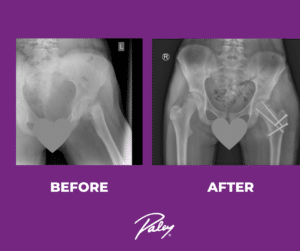Over the years, we learn how to react and what to do when anger arises. Depending on the kind of environment and people we grew up among, we may deal with anger better or worse. Sometimes this emotion becomes so difficult to deal with that we do a lot to just keep it out of our lives.
Perhaps as children we were punished in situations where we showed our anger and now we find ourselves unable to handle the moments when it arises. This is because children initially have an easy time expressing and showing their anger. You can immediately see by their facial expressions, face and whole body that they feel this emotion. It is also normal that they can’t handle anger yet and from our adult perspective it may look as if they feel it too intensely.
The human brain, however, develops until about the age of 20-25, so a toddler still has many years ahead of him to train his reactions and deal with emotions.
Anger does not appear without a reason. If we take a closer look, we will discover that underneath it there are unmet needs and even other emotions and states, such as sadness, shame, loneliness or overload. When intense anger occurs, whether with children or adults, communication becomes difficult. At this time, rational arguments don’t work, and may even intensify difficult emotions. So let’s take care of our own physical safety, the child’s and other people around, but let’s leave the conversation for later – when the child is calm.
It happens that in anger we say things that we later regret. What’s more, we don’t think like that at all, but under the influence of our emotions, we wanted to make someone feel bad. It is the same with children. Therefore, when a child in anger shouts unpleasant words, says that we are the worst parents in the world and that he or she no longer loves us, do not take it personally. Separating the child’s feelings from his or her words or behavior will help us stay calm. Remember that all emotions are okay, even if some behaviors are unacceptable (and it is the latter and their modification that is worth working on later).
Remaining calm in a situation of chaos is not an easy task. It often happens that we take over other people’s emotions, especially those who are close to us. We tend to react too quickly and take control instead of stopping for a moment and thinking about what actually happened and what I can do not to escalate the situation. At such times, it can be helpful to be aware of the feelings that are arising in your body as a result of the situation, and the thoughts that are running through your mind. Paying attention to these things will increase your chances of remaining detached and calm.
The good news is that since emotions are “contagious,” this works not only with unpleasant emotions but also with pleasant ones. Our response to a child’s anger is a valuable lesson to the child about how to deal with unpleasant emotions. If we create space for expressing emotions, accept them, and at the same time point out helpful strategies – we let the child know that emotions are not something threatening, but something natural that comes and goes. In this way we teach them how they can express anger safely, which gives them a sense of power and strength that will come in handy many times later in life (for example during the teenage years, when you often have to say no in order to take care of yourself). However, if we also get carried away with anger, it is worth talking about the situation with the child afterwards. Let’s not be afraid to apologize for our behavior. In this way, the child learns that it is okay to make mistakes, but then apologize for them and correct the situation.
It happens that under the influence of excessive and prolonged fatigue, lack of opportunities for rest, excessive tasks and challenges in everyday life, we will increasingly go out of balance in the direction of outbursts of anger. And just as the emotion itself is completely fine, if it comes to a situation in which we increasingly hurt ourselves or the child, it is worth seeking help. Perhaps psychological support will prove useful. Sometimes, however, in the case of exhaustion, external help is invaluable in relieving us of some of our duties. If possible, use help and support as often as possible. Everyday life can be so difficult that sometimes carrying it on your shoulders alone is too difficult.






